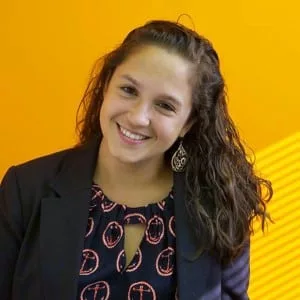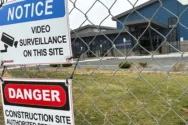
Home » Women Helping Women Fund Tri-Cities looks to decrease funding gap
Women Helping Women Fund Tri-Cities looks to decrease funding gap

July 15, 2016
The Women Helping Women Fund Tri-Cities (WHWF-TC) needs your help. On October 13, the women who sit on the board want to fill 100 tables at the nonprofit’s annual luncheon. In the past, they’ve only been able to fill between 80 and 90, but this year the need is greater than ever. The lofty goal is driven by a deep desire to help women and children overcome struggles of financial independence and self-sufficiency, said Peggy Vasquez, president of the WHWF-TC board and Chief Executive Assistant at Pacific Northwest National Laboratory.
[blockquote quote="We want people to understand, ‘we need you; our community is experiencing severe need.'" source="Peggy Vasquez, president of the WHWF-TC board" align="right" max_width="300px"]
And even if the group fills 100 tables — which equals 1,000 luncheon participants — and everyone donates $100, they still won’t be able to fully fund all the grant requests. This year WHWF-TC received 19 applications totaling $300,000 in funding need.
“The need is greater than it has ever been. Since I’ve been on the board we’ve never had that many grants come in,” Vasquez said. “We want people to understand, ‘we need you; our community is experiencing severe need.’”
The momentum for the organization began in the 1990s when Muriel Templeton, Jim Gordon, Jodie O’Quist-Burrows and Sharon Rhodes served as members of the Women’s Resource Center Advisory Board at Columbia Basin College.They saw a gap in the availability of community resources to meet the needs of women and children, so they formed a committee and started looking at viable ideas on how to address the lack of resources. They got their cue from Women Helping Women in Spokane and in 2001 they held their first luncheon —still the group’s only annual fundraising event.
Since 2001 WHWF-TC has been able to raise almost $2 million for 88 local nonprofits. Throughout the years the organization has funded a wide range of programs to combat homelessness, mental illness, literacy, hunger, substance abuse, domestic violence and even sex trafficking.
“It’s really remarkable. One thing we’re very passionate about is that you get to help people right here in the community, and you know you’re making a real difference. When we collectively bring our funds together look what we can do,” she said. “I’m just so sad that we can’t do more, because there is so much need.”
Vasquez said WHWF-TC looks to fund programs that not only benefit women and children but also focus on long-term sustainability and self-sufficiency.
One of those programs, Elijah Family Homes, offers a three-year transitional housing and support program to families that can’t qualify for public housing due to addiction, criminal convictions or domestic violence. The program provides life skills, training, parenting support, and rehabilitation with the goal of having families graduate from the program and be able to support themselves and their families without need of assistance.
“People who have been through that program, are now living on their own and have become counselors, they have people who are going to school and are getting ready to graduate. It’s remarkable,” Vasquez said.
Last year WHWF-TC also funded SMART Girls of the Boys and Girls Clubs of Benton and Franklin Counties, a program that teaches girls between the ages of 8 and 17 about topics related to health, fitness, prevention, education and self-esteem enhancement. And Pathways to Literacy through the Washington State University Foundation is helping to increase literacy among Franklin County Latino families.
Vasquez said although many of the programs WHWF-TC funds tend to cover basic needs such as food, housing, education, and social services — the organization also seeks to fund programs related to exposing families and young children to the arts.
The grant applications are due in February, and by May the nominees have been decided, although they won’t be announced until the luncheon in October. The organization also offers grant-writing workshops to assist non-profit organizations that may not have the previous experience filling out an application. They also make sure to follow up with grant applicants with missing information and materials.
“We make sure it’s all complete by the time we review them,” Vasquez said. “Each board member reads and scores the applications individually, and then we have interviews, at that point the scoring may change.” Board members also perform site visits after six months to see if funded organizations are meeting grant specifications. Half of the allocated funds are presented upfront; the second half is disbursed after successfully passing the six-month visit.
On July 13, the organization hosted a table captain reception to motivate community members to commit to invite more people to attend its October fundraising luncheon.
“One thing we realized is that many people don’t even know who we are. This is our opportunity to educate our community and to entice people to take on the role of table captain, and try to make the ask and get more table captain commitments,” Vasquez said. “We’re really focusing on word-of- mouth and building relationships.”
The luncheon is October 13 at TRAC Center in Pasco.
For more information and to get involved visit www.whwftc.com or visit the group’s Facebook page.
Local News Charitable Giving & Nonprofits
KEYWORDS july 2016





